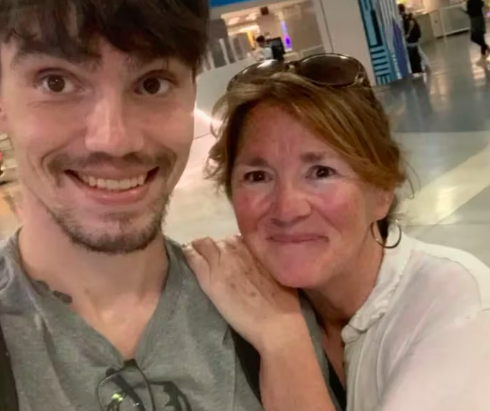
During the years he lived unhoused and using drugs on the streets of Kensington, Theo was beaten, robbed, and assaulted. He suffered horrible, life-threatening injuries and overdosed — and was revived with Narcan — more times than he can remember. He felt shunned by the people who picked up their pace to pass him on their way to the El.
“You surrender your humanity. Other people, society as a whole, doesn’t recognize you as a person. They don’t even acknowledge your right to exist as a homeless drug addict,” says Theo, now 30. “The world is cold and indifferent and sometimes even hostile.”
But even in Theo’s darkest times, he always felt seen and cared for by the Prevention Point Philadelphia workers he met on the streets and in their facility.
“They’d sincerely ask me how my day was going, and that little bit of warmth, that glimpse of humanity, it was so precious to me,” he says. “Family and friends will come, and they’ll be there because of how I was or who they want me to be. Prevention Point is there for me at the moment. There’s no trajectory they’ve lined up for me. You’re here and you’re deserving and that’s humanizing.”
Theo has been in recovery for more than a year, thanks in part to Prevention Point’s Medication for Opioid Use Disorder (MOUD) program, which provides participants one of two medications — either naltrexone injections or injectable/oral buprenorphine. Participants in the program work with a care manager and a Certified Recovery Specialist.
“I am here today because of the efforts of Prevention Point,” he says. “I know when I was homeless I was a difficult person to experience, a difficult person to know and work with. Prevention Point supported me despite of myself. Because of that attitude, I’m here today. My life had value then. My life has value now.”
Theo was 15 when he started using drugs to mask his awkwardness and insecurities, going from a kid who was perpetually on the outside of the crowd to someone in the center of it all.
“When I took that pill, all of a sudden, I was confident. I had charisma,” he remembers. “And I chased that feeling for the next 15 years. The problems grew and changed, and the physical properties of the drug went from pills to power, powder to needles, but I was chasing the same thing. It was just relief.”
If there was a physical place… that could match how I felt on the inside, it was Kensington and Allegheny. You go there and you see everything happening there, the hopelessness, this darkness, and that’s how I felt inside.
Theo went to rehab for the first time when he was 16. He enjoyed brief pockets of sobriety before “I stopped doing the maintenance, I stopped working at it and I’d end up relapsing,” he says. “It was like Sisyphus rolling the stone up the hill, the same thing every time.”
Theo’s parents and younger brother did all that they could to help him, but he still stole from them and used drugs in the family home. When Theo’s father died of cancer at home five years ago, Theo’s brother found him upstairs, passed out, with a needle in his arm. “My brother still tells me that was the worst moment of his life,” Theo says.
Prevention Point is always willing to be there for a person and that’s everything.
It was definitely a low point, and it only got lower. Theo’s mother and brother took out restraining orders against him and he began living on the streets of Kensington. There he was robbed, beaten and shot. He overdosed multiple times and was saved by first responders with Narcan. Theo thought that was the life he deserved.
“If there was a physical place… that could match how I felt on the inside, it was Kensington and Allegheny. You go there and you see everything happening there, the hopelessness, this darkness, and that’s how I felt inside,” he says. “Growing up I often felt like I didn’t belong or out of place, but on Kensington Avenue, I fit right in.”

He learned about Prevention Point through its HIV Prevention and Supply Distribution program. He began utilizing its other offerings, including free Narcan, and soon realized this place and these people were safe.
“When I got hit in the head with a hammer, my head was open and I was covered in blood, I went to Prevention Point,” he says. “I knew these people were going to be kind and would be sympathetic in some way.”
Theo used Suboxone to help reduce opioid cravings and get into recovery. Today he works as a cook at a restaurant — “I have a key to it,” he says as a way to show how much he’s trusted. He lives in Roxborough, frequently seeing his mother and brother as he works towards rebuilding those relationships. It’s not easy, he says, but life is worth the effort.
“I had a lot of friends pass away from this, people who were smarter than me, kinder than me, funnier, people who had everything going for them before they died from this disease,” he says. “It comes down to supports being available and being willing to take advantage of those supports. Prevention Point is always willing to be there for a person and that’s everything.”